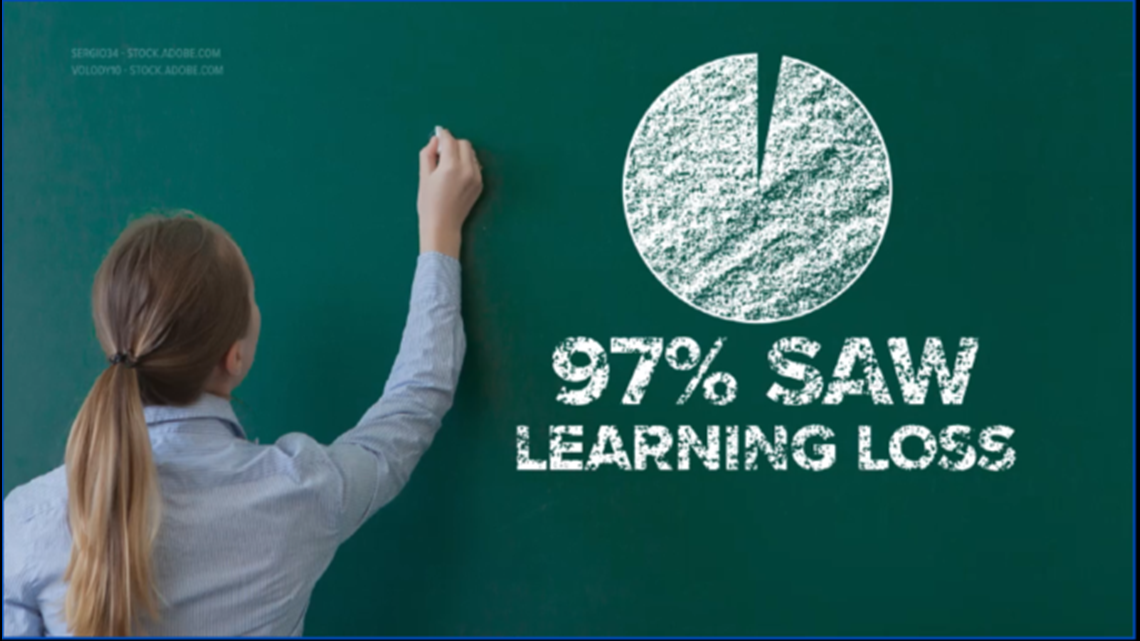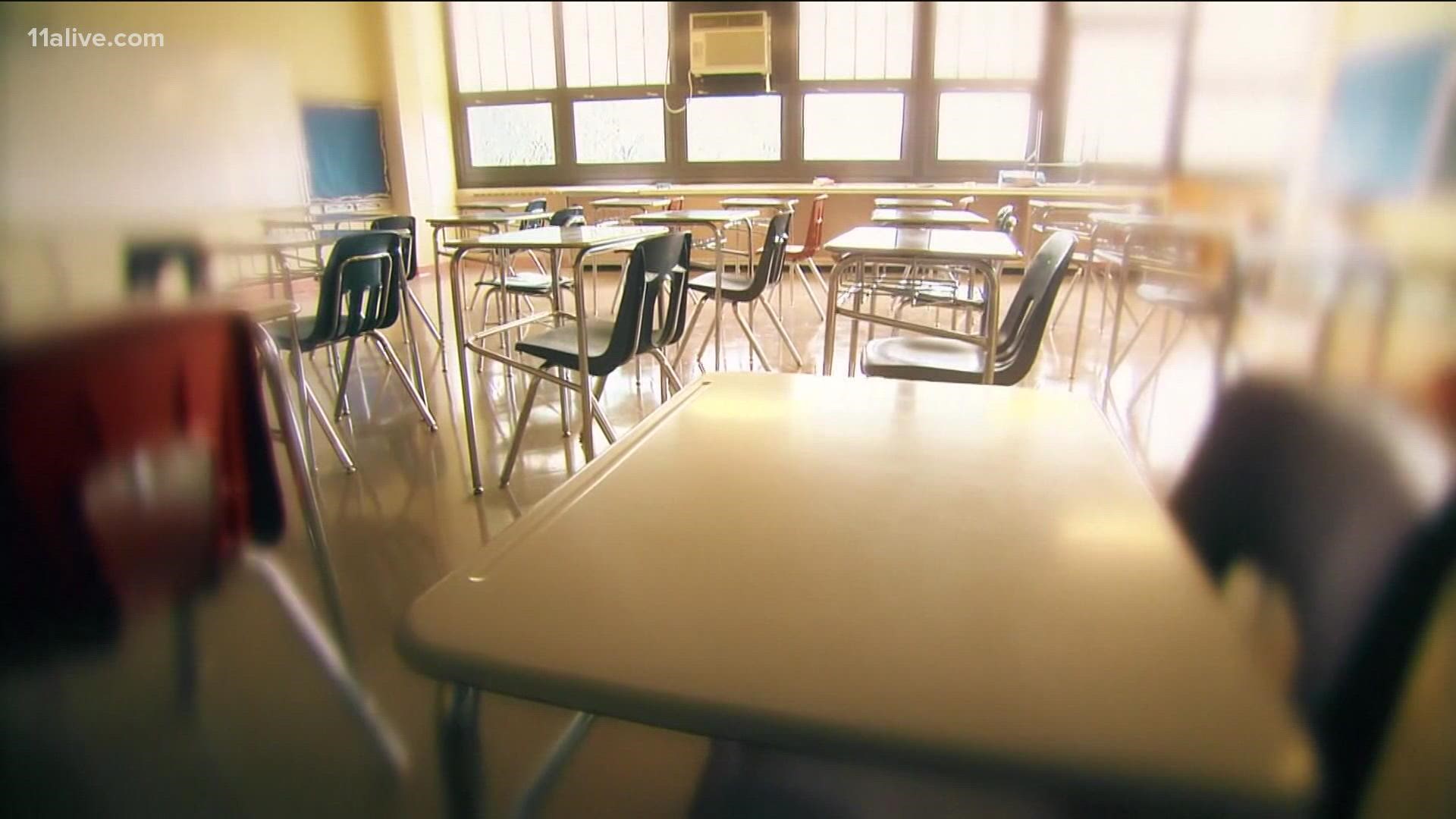ATLANTA — The COVID-19 pandemic has undoubtedly set back students’ learning, and brought disparities to light.
A McKinsey & Company report found students of color are an estimated 6 to 12 months behind, compared with 4 to 8 months for white students.
Georgia was recently given the green light to use $1.4 billion in federal covid relief specifically to address learning loss.
“When the pandemic hit...I knew we were we were in trouble," said Dr. Kimberly Berens, childhood development expert and author of Blind Spots: Why Students Fail and the Science That Can Save Them.
Students were systematically underperforming before the pandemic hit, Dr. Berens explained, adding that schools will have a major uphill battle addressing learning loss this year.
“We still don't know what the real impact this has had on kids, especially underprivileged kids," she said, "and I I'm very concerned that it's, it's been very significant.”
A recent “voice of the educator” survey found 97% of teachers saw some learning loss in their students over the past year.


The US Department of Education approved Georgia's plan to use $1.4 billion of federal Covid relief funds to address it, in part by expanding after school tutoring, implementing more mental health resources in schools, and funding community learning programs.
Educational programs outside of the traditional school system will play a big role in helping kids catch up and reinvigorate their learning, advocates like Dr. Berns say.
Morehouse College, in partnership with Verizon Innovative Learning, took that mission to heart this summer.
The virtual Young Men of Color Program, a three week camp held in June, brought together middle schoolers from Title I schools in the Atlanta area along with college student volunteers to introduce and foster a love of STEM topics and discover STEM career paths.
“I can only imagine how it felt to be a child and have to go through this," said Darrius Cooper, a recent Morehouse graduate who was one of the camp's leaders. "You see how the pandemic truly has affected them. I just wanted to continue to pay forward.”
Cooper says the camp, which was free for the students, had a clear and significant impact.
“They were so ecstatic that this opportunity was there for them," Cooper said. "The energy that they brought, wanting to learn more, was absolutely great."
It served as a re-invigoration and inspiration for students after a year of virtual school.
“It's like great for life, especially for someone like me to use that extra step to improve their life and society and have a great career," said 13 year old Judah Whaley, who said the program's mentors played a big role pumping him up for a new school year.
"Not only did they have a connection to Morehouse, but they were also great scholars in math and science," Whaley said. "I was like, I could really learn from these amazing Black people. They taught us to be great and made me want to be great.”
Uriah Guyton, 13, also participated in the camp.
"They inspired me to pursue a career of being an engineer," Guyton said.
Georgia state leaders have not outlined specifics of how the $1.4 billion will be spent and disseminated between schools and community programs.
Districts say they’ll be evaluating and identifying the gaps and needs that arise during the year.
Educators certainly bracing for the challenge and working overtime to set kids up for success.

